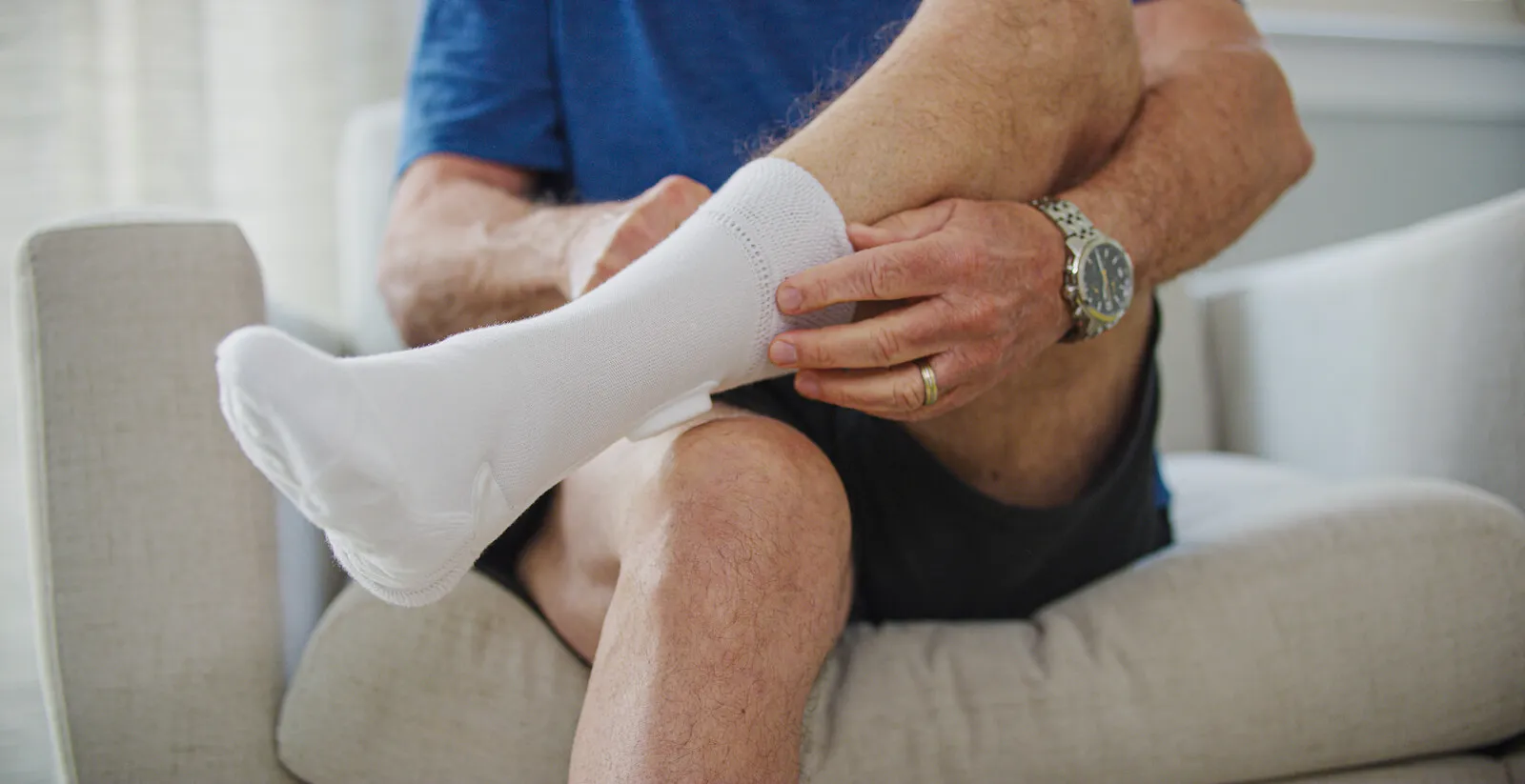-
December 29, 2021
5 Simple New Year’s Resolutions To Help You Manage Your Diabetes
Here are five simple changes that will deliver big results in your diabetes management this New Year.

With the New Year rapidly approaching, you might be considering which goals to set for yourself in 2022. Relationship, career, and weight loss goals are some of the most common New Year’s resolutions, but have you considered putting diabetes management at the top of your list? Here are five simple changes that will deliver big results in your diabetes management this New Year.
#1 Move Your Body
It is no secret that exercise is important for your health and wellbeing. Exercise is linked to lower body fat percentages, reduced risk for chronic illnesses and some cancers, better mood, and greater functional capacity as you age. As someone with diabetes, regular physical activity helps reduce your blood sugar levels and increases your body’s ability to produce and use insulin.
If the word “exercise” triggers feelings of dread as you contemplate long hours in the gym or knee-aches from miles of running, you’ll be pleased to learn that exercise does not have to look like either of those things.
This year, try prioritizing body movement rather than exercise. In fact, feel free to ditch the word “exercise” altogether! Instead, schedule time into your day to simply move your body in a way that is enjoyable for you.
Movement will look a little different for everybody, but activities like walking with a loved one or a pet, playing with your children or grandchildren, taking a ballroom dancing class, bowling, riding a bike, or stretching in your living room are all acceptable. The only wrong activity is no activity!
Studies suggest that two hours of body movement each week is enough to start seeing results in your health, but begin with whatever amount of time is sustainable for you.
#2 Rest Your Mind
Did you know that chronic stress has been linked to poor blood sugar control?
Your body is equipped with a system commonly referred to as the “fight or flight response,” a series of hormones designed to keep you safe when encountering a threat. When your brain senses that you are in a dangerous situation, these hormones are released into your bloodstream. These chemicals, often triggered by harmless daily stressors, increase your blood pressure, heart rate, and blood sugar.
For people with diabetes, chronically elevated stress hormones can cause sugar to accumulate in the blood, making management of the disease more difficult. Taking time to rest your mind will help ease your brain’s stress response and keep your blood sugar at a more manageable level.
First, find an activity that you enjoy such as reading, crafting, walking, or listening to music or a podcast. We recommend avoiding social media and overly stimulating shows, movies, or video games.
Next, schedule time into your day to enjoy this activity when you know you won’t be interrupted. Start with short intervals of time and slowly build up as it becomes more routine.
#3 Stay Hydrated
Water is vital for all bodily functions, including blood sugar control. For people with diabetes, maintaining adequate hydration is particularly difficult, especially if blood sugar levels are high.
When blood sugar levels are high, your kidneys will begin producing more urine in an effort to eliminate excess sugar. Unfortunately, when more urine is made, more water is leaving your body which can lead to dehydration. Dehydration can cause your blood pressure to drop and signal your body to release stress hormones which increase your blood sugar levels, resulting in a vicious cycle of high sugars and dehydration.
Learn to recognize the subtle signs of dehydration, and have something to drink if you notice them.
- Dry mouth
- Dark-colored urine
- Headache
- Dry skin
- Muscle cramps
- Dizziness/ lightheaded
Plain water is always a good choice when selecting a beverage, but if you want a little more flavor, choose a drink that is sugar-free. Water with lemon, unsweetened tea, black coffee, seltzer water, and sugar-free soft drinks are good alternatives for plain water.
Experts recommend two liters of water per day for most adults, but this quantity may need to be adjusted if you have a heart condition.
#4 Get a Check-Up
Make it a priority this year to see your doctor for a routine check-up. They will be able to ask you questions about your health, and you will be able to discuss any concerns you may have about your diabetes.
Meeting with your doctor even when you feel well keeps them in the loop about your overall well being, and gives them the opportunity to check health markers including your blood pressure, weight, and lab values like blood sugar, A1C, and cholesterol.
#5 Focus on Your Foot Health
Neuropathy and foot ulcers are common complications associated with diabetes. Elevated blood sugar levels can damage the tiny blood vessels and nerves in your feet over time, leading to chronic pain and infections. In cases of a serious infection or tissue death, a surgeon may need to amputate all or parts of your foot.
Preventing these complications should be a priority in the New Year, starting with proper footwear. Provide your feet with the protection they need by investing in diabetic shoes and socks. Comfortable closed-toe shoes with laces and dye-free socks are a great place to start.
Seeing a podiatrist one to two times per year is an excellent habit to adopt as someone with diabetes. These specialists perform thorough examinations of your feet and check for signs of infection and other complications like Charcot foot.
If you are ready to take your foot health to the next level, talk to your provider about Siren socks. Our wearable wireless technology reduces your risk of developing ulcers and infections by monitoring your foot’s temperature and moisture level.
Schedule an appointment with one of our Certified Siren Providers to find out if you are eligible for Siren socks.
Sources:
Harvard Health. The Importance of Exercise When You Have Diabetes. February 3, 2021.
Purdie, J. Diabetes and Stress: Know the Facts. Healthline. May 29, 2020.
Bucklin & Migala. How Dehydration May Affect Type 2 Diabetes Management and Risk. Everyday Health. July 29, 2021.
Latest Articles

Siren Raises $9.5M, Led by an $8M Investment from Mölnlycke Health Care to Drive Diabetic Foot Ulcer Prevention and Management
Siren announces investment by Mölnlycke of $8 million to further development and adoption of Siren’s innovative diabetic foot ulcer prevention solution.
About Siren Socks
Siren Socks are smart socks that help detect potential issues with your feet. Siren Socks are an FDA-registered Class I medical device and are designed for people living with diabetes and neuropathy. The socks measure your foot temperature. Temperature monitoring has been shown to help reduce the number of diabetic foot ulcers in multiple clinical studies over the past 20 years and is considered the gold standard in diabetic foot care. The information from the socks is monitored by licensed nurses who contact you regularly to check on your health and the status of your feet. Your doctor reviews any issues that arise and determine if a clinic visit is necessary. Siren Socks are covered by Medicare, Medicare Advantage, and many private insurance plans. Interested patients can find a Certified Siren Provider near them and begin the enrollment process by clickinghere.
